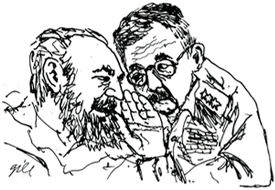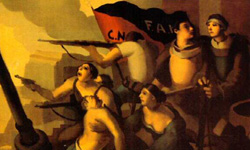From the Editors, Marvin Mandell and Betty Reid Mandell
Iraq: Democrats to the Fore, Barry Finger
IMMIGRATION
* Hidden Slaves, Human Rights Center, University of California, Berkeley
* Swedish Labor and Immigration: A Dilemma, Rikard Warlenius
* The Immigration Rights Movement: Between Political Realism and Social Idealism, Dan La Botz (with notes)
Homeless Shelters: A Feeble Response to Homelessness, Betty Reid Mandell (with notes)
Finland is Soft on Crime, Dan Gardner
Revolutionary Unionism: Yesterday, Today, and Tomorrow, Dan Jakopovich (with notes)
Alice in Imperialand, Richard Greeman
Laws and Injustice: Fighting for Human Rights in Mexico, Chris Tilly and Marie Kennedy
Raul’s Cuba, Sam Farber [Español]
Return of Limits, Ashley Dawson
Who’s Afraid of the ICC, Laurie Calhoun
The Socialist Challenge for British Labour Party Leadership: Interview with John McDonnell, M.P., Chris Ford and David Broder
The Religious Right and the Perversion of Biblical Ethics: Unclear on the Concept, Russell Pregeant
In Memoriam: Ellen Willis, Lynn Chancer
Leaving Asia Minor: A Poem, Andrew Krivak
New Politics: A Poem, Everett Frost
Reviews
* Armageddon Blues, Jackie Dee King
* Marx’s Mixed Legacy, Sherry Gorelick
(see Debate: Anti-Semitism and Socialism)
* It’s Not East Being Green, Kurt Jacobsen
* A Sober View on Capitalism, James Gilbert
* Killers for Hire, Michael Busch
Words and Pictures
* Interview with Harvey Pekar, Kent Worcester



